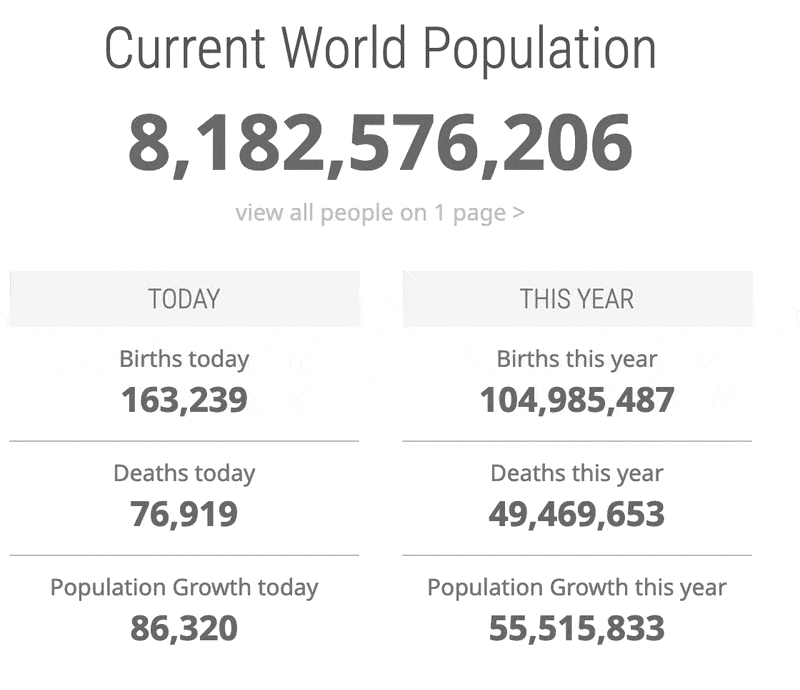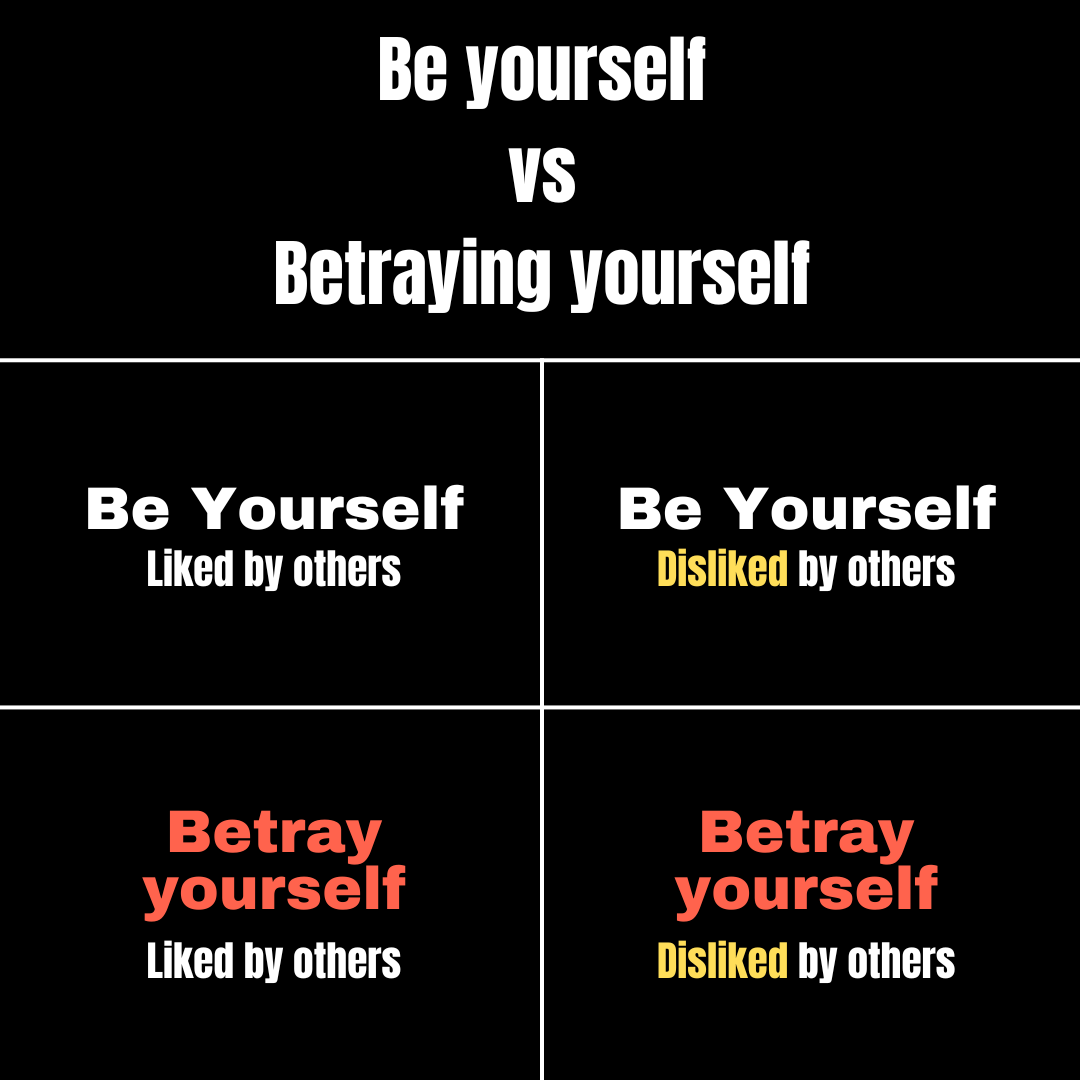All the time, we all hear the following: “Just be yourself.” On the whole, I concede that these words form sage and sound advice. In fact, as someone who historically shaped shifted throughout his life in order to conform to social expectations, I mindfully practice being myself every day.
The act of being oneself is a topic over the past six months occupies a large portion of my mental real estate. Because I’m interested in this topic, I fall victim to Baader-Meinhof phenomenon (i.e. frequency bias), my attention antennae keep gravitating towards discussion where the topic of “being oneself” centers the conversation.
In fact, this entire post was motivated by a podcast episode (from The Capsule, a London based dance podcast) revolving around sports psychology performance. During that episode, the guest (Jo-L) shares his perspective on having the choice to be yourself:
“You can make a choice … People are going to love you for everything that you are … and everything you want to be … [or] they are going to hate you for that. Then, on the other hand, there are going to be like hating you for all the things that you are not, as in that you pretend to be. So like, essentially speaking, you’re making the choice between like …. you’re going to be loved or hated anyway, so you might as well be loved for the things that you wanted to be loved for.”
In response to this, the podcast host points out even a more subtle, more dangerous aspect to what I’m going to call betraying yourself.
“… or even worst, lose [a dance battle] cause of who I am not. Imagine changing your whole dance because that’s the RIGHT thing to do or the RIGHT way of dancing”.
Overall, I agree and I myself will continue biasing towards just being myself.
However, my curious nature wanted to dig into the notion of betraying yourself (i.e. “not being yourself”) and how I consider it to be quite a seductive position. Because there will be moments in which you betray yourself. Because there are moments when you will be rewarded in the form of praises from others.
According to Chase Jarvis, he believes this constant betrayal happens to all of us:
“We will all betray ourselves over and over again and the goal is to just do so slightly less and return to ourselves with a little more kindness and a little more awareness and get 1 percent better every day … the person who is a degree off who walks a thousand miles”
With that in mind, let’s compare being yourself versus betraying yourself.
Be yourself
When you just show up as who you are, you might be liked by others. This quadrant, to me, is the ideal condition, wouldn’t you say? There’s no performing. You spend little cycles taking the temperature of the room. You spend less time evaluating body language and attuning to facial micro expressions. You are doing what dialectical behavior therapy calls participating, mindfully being in the moment.
Of course, when you are being yourself, you may be disliked by others. This is inevitable, considering there are over 8 billion people occupying this earth. How could any one person be liked by everyone? That’s statistically impossible. Furthermore, every individual person on this earth is unique, according to Reiss Motivation Profile, which posits that though we are all motivated by the same 16 basic human desires, how much we’re motivated by each value differs.

Betraying yourself
On the whole, betraying yourself is more or less “masking”, being someone you are not. At the risk of being overly understanding (is that even possible), we all do this, according to Chase Jarvis
“We will all betray ourselves over and over again and the goal is to just do so slightly less and return to ourselves with a little more kindness and a little more awareness and get 1 percent better every day … the person who is a degree off who walks a thousand miles”
Now, betraying yourself can be effective (and dare I say, useful) in certain contexts. For me, personally, assuming we all betray ourselves on and off throughout the course of our life, I want to both give latitude to myself and increase my awareness when this betrayal occurs.
Though we can betray ourselves in the short term, it is not, according to sports Psychologist Michael Gervais, unsustainable in the long term.
“You contort to fit in. You sacrifice authentic expression on the altar of approval. You twist yourself into a shape that appears socially acceptable but it’s performative in nature. The response does not represent your authentic self. Contorting creates a temporary relief but leaves you feeling disconnected from others. Because you don’t share your true self, you never feel connected, understood, or embraced, nor do you become a trusted member of the community. By pretending to be someone you’re not, you constantly feel the pressure to maintain the facade. This can intensity the feelings of insecurity and fear of exposure.” (pg. 40; Gervais: First Rule of Mastery)
Now, what about betraying yourself and being disliked by others? If being yourself and being like by others is the most ideal quadrant, then betraying yourself and being disliked is the least ideal, the most disappointing. The possibility of this happening sufficiently motivates me to shy away from this behavior: what a slap in the face to pretend to be someone you are not, only to be rejected?
Summary
So, armed with this information, how do I want to approach my life from this point? These days, I tend to choose “Be Yourself”. I’m someone who values high degrees of acceptance (i.e. two standard deviations from the norm).
I will end this post with a little snippet from Steve Job’s commencement speech, which I’ve been memorizing and rehearsing daily, as if it were my own personal mantra. I wake up in the morning, verbally recall these words, and then from memory, try and write down these words. For me, it is one of the ways I am practicing a stoic approach to living:
“Remembering that I’ll be dead soon is the most important tool I’ve ever encountered to help me make big choices in life. Because almost everything — all external expectations, all pride, all fear of embarrassment or failure — these things just fall away in the face of death, leaving only what’s truly important. Remembering that you’re going to die is the best way I know to avoid the trap of thinking you have something to lose. You’re already naked. There’s no reason not to follow your heart …
Your time is limited, so don’t go wasting it living someone else’s life. Don’t be trapped by dogma — which is living with the results of other people’s thinking. Don’t let the noise of other people’s opinions drown your inner voice. And most important, have the courage to follow your heart and intuition. They somehow already know what you truly to become. Everything else is secondary”
